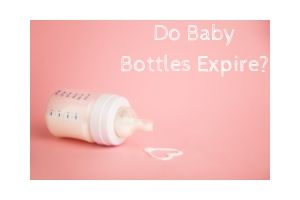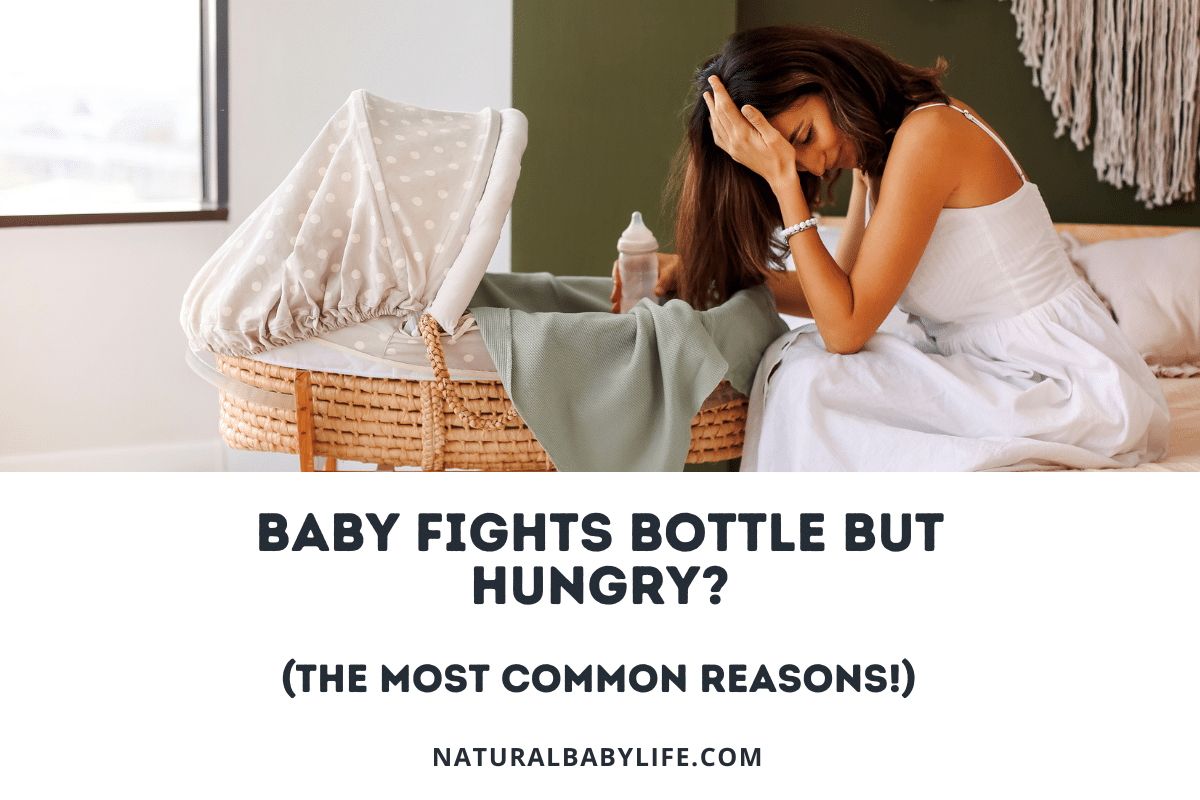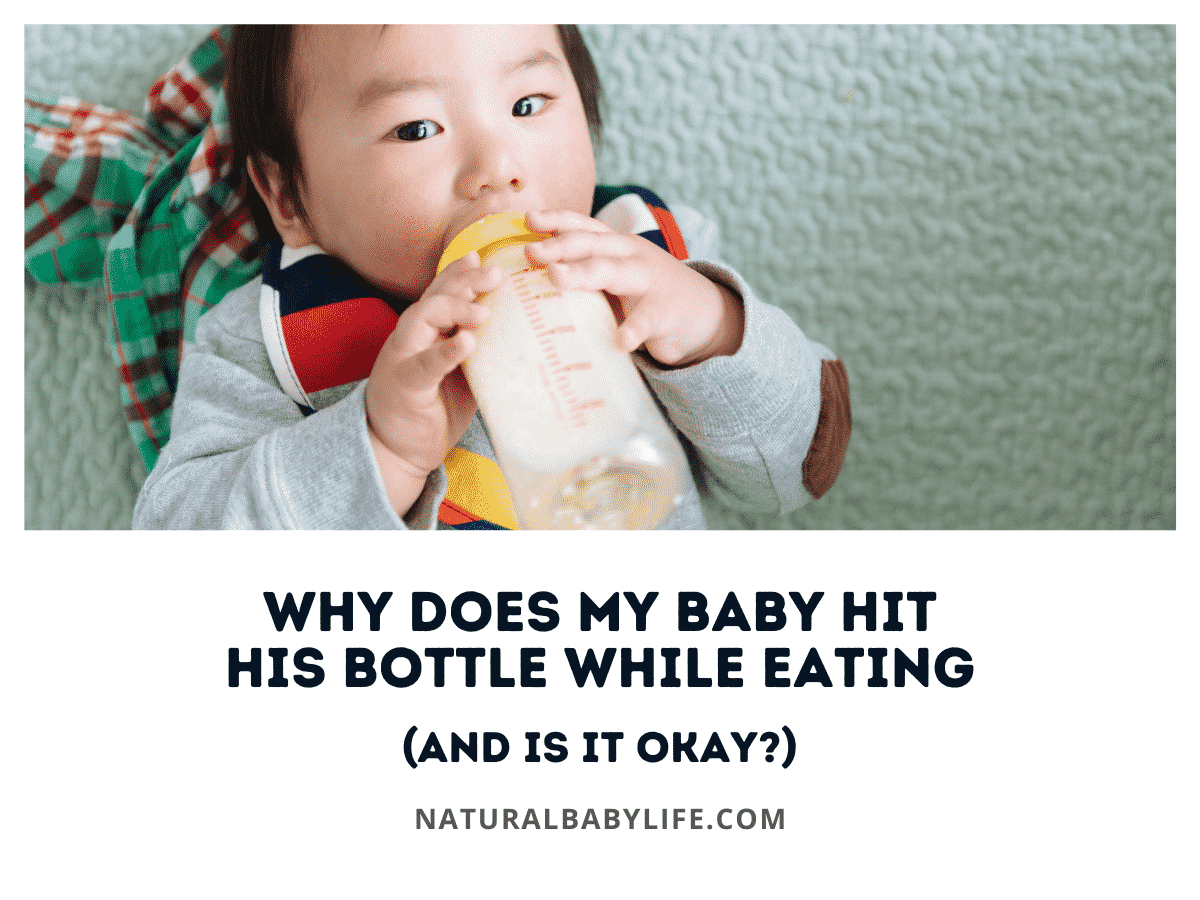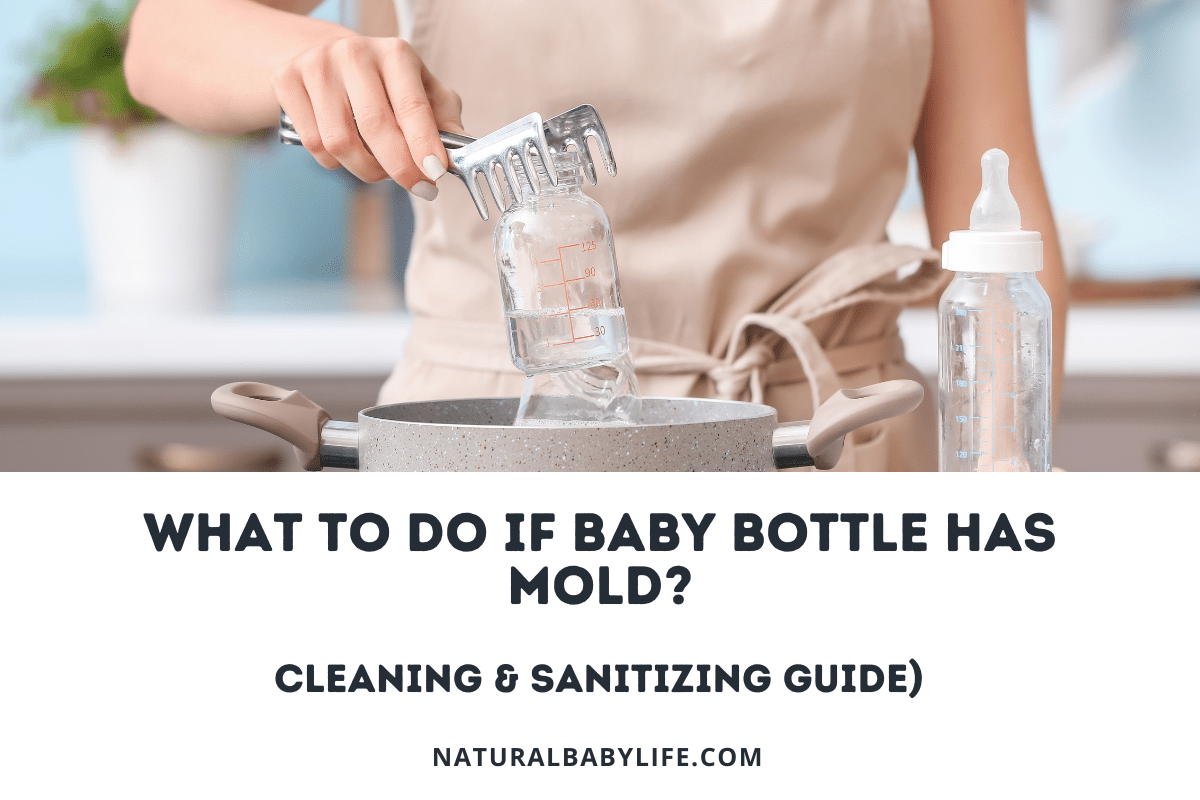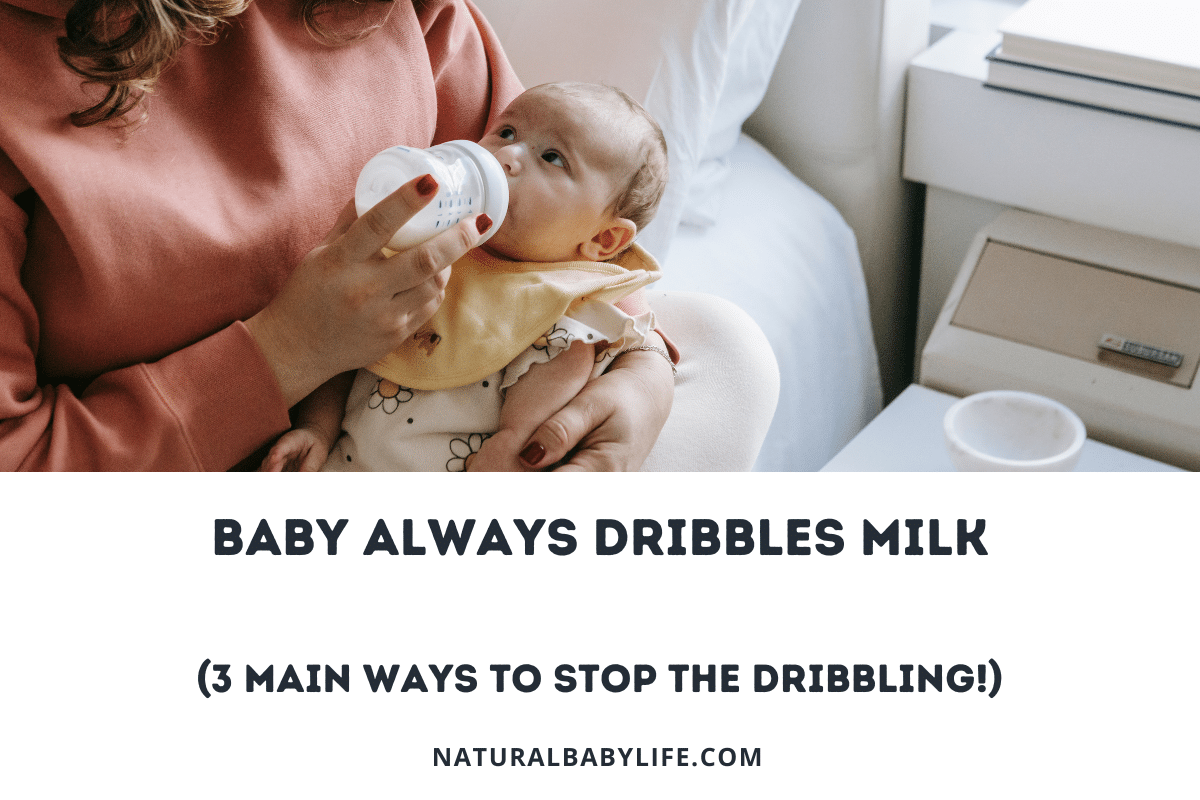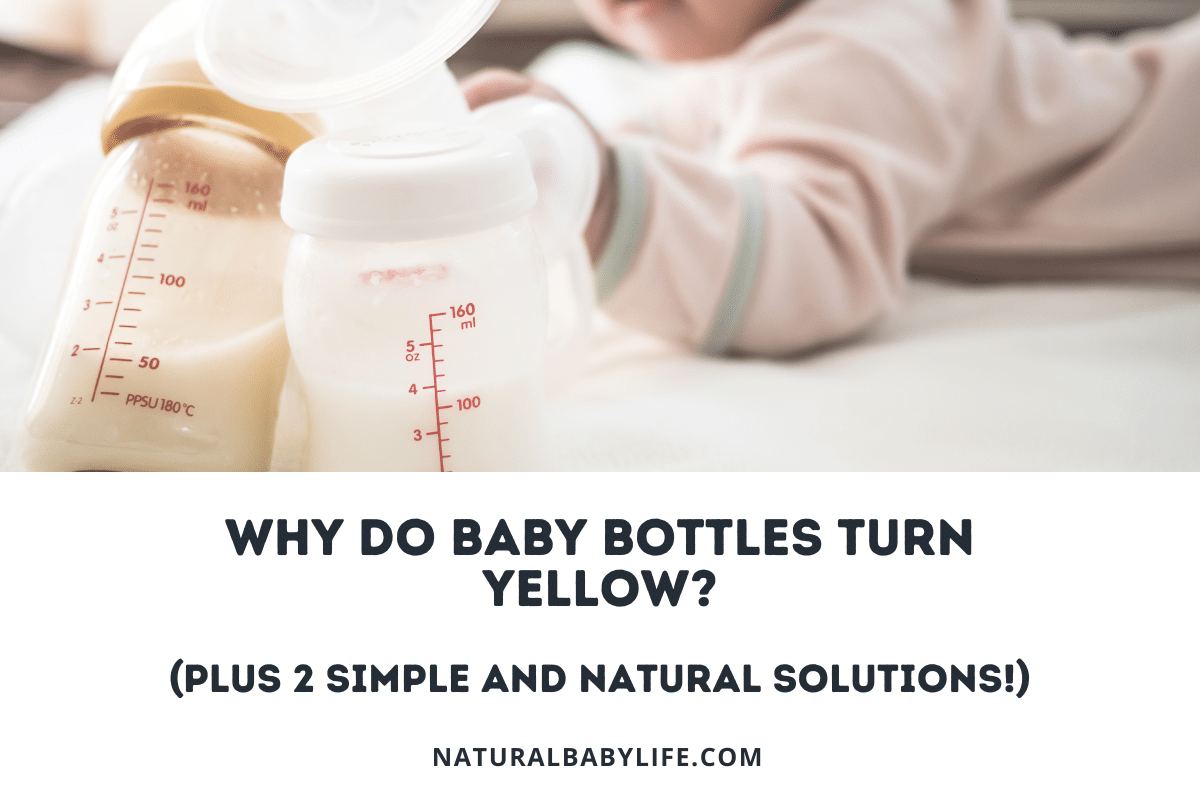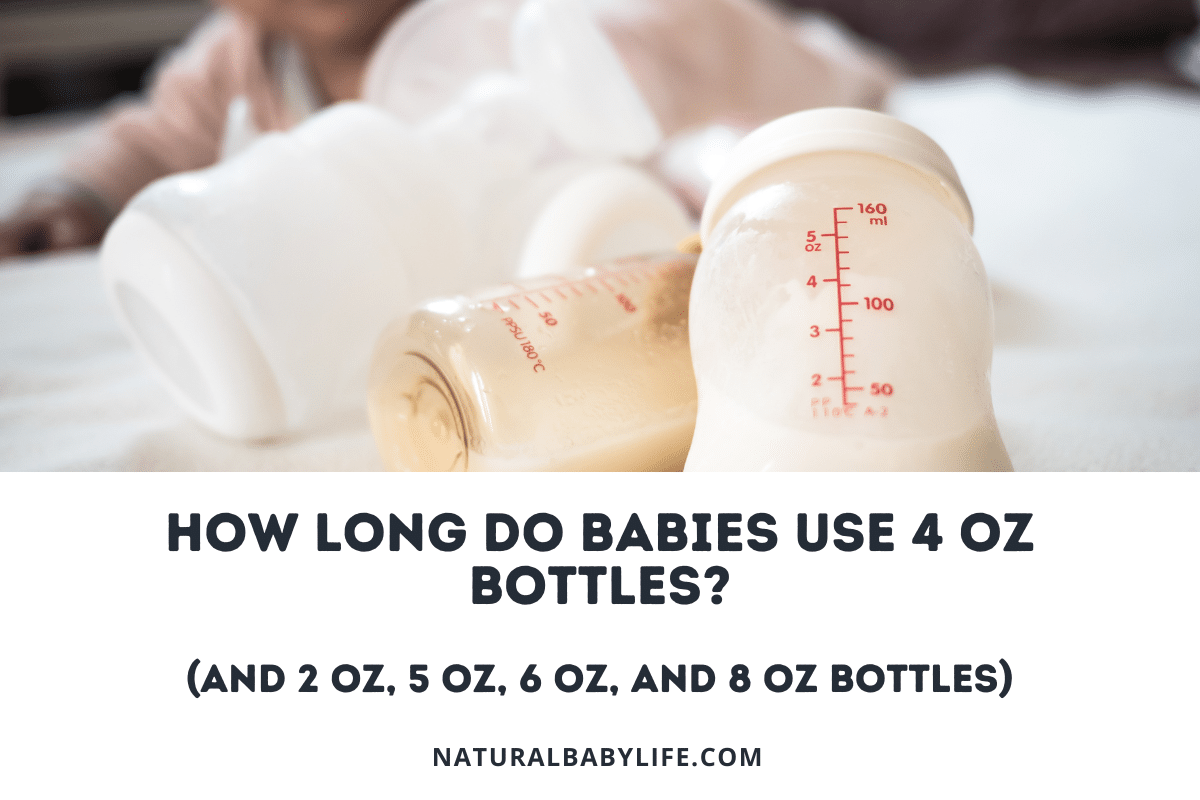First-time parents are generally given everything they need for when the baby comes along (and sometimes more than they need!), but when baby number two is on the way, parents are usually expected to reuse the baby gear they already have. Frugal parents usually hang onto their baby items if they are planning on having more children, but just how much of that baby gear can be reused? Baby bottles are a necessity for most families, but if you have some leftover, you may be wondering if baby bottles expire or have an expiration date or if you will have to buy all new bottles for your next child.
Baby bottles do not normally have an expiration date, but they will need to be replaced periodically due to wear and tear. Plastic baby bottles should be replaced when they are cracked, chipped, discolored, or leaking and care should be taken that they are not made with plastics that contain BPA. Glass and stainless steel baby bottles will last longer, but should be replaced if damaged.
There are many different types of baby bottles out there and whether you are wondering if the bottles you currently have are still good or if you are wondering what type of bottle to buy, it is important to know how long each type of bottle will last you and if it is safe to reuse them for baby number two. Let’s look at the specific types of baby bottles to find out if the bottles you have are still good or if they should be replaced.
Table of Contents
Do baby bottles have an expiration date?
It might seem a little silly to wonder whether or not baby bottles expire, but nothing lasts forever. There are some things you will need to pay attention to when you are making the decision to keep your bottles or replace them.
Although baby bottles, in general, don’t have an expiration date, some bottles last longer than others depending on the type of bottle, brand, and frequency of use. One thing to consider when buying baby bottles for long term use is the type of bottle you are buying. There are many different types of baby bottles out there and choosing the right one for your child is not always easy. Plastic baby bottles are typically the most popular type since they are the most affordable and most accessible, but if you are looking for something that can be used long-term, they may not be the best option for you.
Do plastic baby bottles expire?
Plastic baby bottles are the most common type for parents because they are easy to find and relatively inexpensive compared to other types of bottles. If you’re trying to save money, you may want to reuse baby bottles you have stored over time but you might be wondering if they are still good to use or not. Technically, plastic baby bottles don’t have an expiration date. Just because they don’t have one, however, doesn’t necessarily mean you should reuse them or that they are the best option for your child.
Concerns about plastic have only grown over the past fifty to sixty years, and plastic has certainly become a hot topic over the past decade as more research has been done on the effects of plastic, especially on young children. Personally, we have switched to stainless steel or glasses bottles for our kids to avoid having anything to do with it!
In fact, my personal favorite baby bottle is actually made by Comotomo and it includes medical-grade silicone along with BPA-free plastics. It’s also super easy to clean, durable, and features an innovative design that allows babies to hold it more easily! Check it out here!
Still, there are several factors to consider if you are planning on using or reusing plastic baby bottles.
1. How much wear and tear have the bottles had?
When it comes to plastic bottles, the plastic does change over time, especially if it has been used for a while and exposed to a significant amount of heat. With polycarbonate bottles, for example, using hot water and harsh cleansers can cause the plastic to break down more quickly. While bottles these days are no longer made of polycarbonate, older bottles may have this type of plastic in them.
2. Are the bottles BPA free?
Due to rising concerns about the effects of BPA on young children and infants, the FDA banned the use of BPA in baby bottles and sippy cups in 2012. Most bottles made after that time should be BPA free, so if you are going to reuse plastic bottles, make sure you check when they were made and if they have BPA.
I should point out that it can be tricky to figure out if a plastic bottle is free of BPA unless it specifically states that it is on the package. There are also some concerns that even ‘safe’ plastics are capable of leaching hormone-disrupting chemicals into the contents of the container.
3. Have the bottle nipples been replaced?
If you are going to reuse plastic bottles, the condition of the bottle nipples is actually more important than the bottle itself! The nipples tend to degrade much quicker than the actual bottle because they are made of a different material, so if you are going to reuse the bottles, it is best to just replace the nipples. You can buy replacement nipples from most bottle companies without having to buy all new bottles.
You’ll know that the nipples are too old to use if they are discolored (usually yellow), brittle, or have tears.
Do glass baby bottles expire?
Glass baby bottles are not as common as plastic, but they are starting to become more popular as more parents are trying to be eco-friendly and keep their children safe from harsh chemicals such as those found in certain plastic materials. Glass baby bottles are a great option if you are looking for something reusable that can be used long-term. Just like you may reuse glass dishes over many years, glass baby bottles can also be reused as long as they are taken care of and cleaned properly. There is no expiration date for glass bottles and they are great for long term use since the glass can withstand heat better than plastic.
One of the major concerns parents have with glass bottles, however, is the fear of them breaking. Broken glass is an obvious safety issue for babies and children. Although this is a valid concern, if you are planning on trying out glass bottles you should know that many companies now sell silicone sleeves to go over the bottles in order to prevent them from breaking. They even come in lots of fun colors!
Do metal (stainless steel) baby bottles expire?
Metal or stainless steel bottles are another option for parents who are trying to get away from plastic bottles. One of the benefits of stainless-steel bottles is there isn’t any danger of them shattering.
But, how long do they last?
One of the other benefits of stainless-steel bottles is they last a long time! There isn’t a specific expiration date for stainless-steel bottles, but much like plastic bottles, there are some concerns about chemicals being transferred into the breastmilk or formula contained in the bottle. Oddly enough, stainless steel is likely to be more problematic when it’s new than when it’s old.
With stainless-steel bottles, the greatest risk of chemicals transferring is when the bottles are first used. With new bottles, you can boil the bottles in white vinegar before use. The acidity in the vinegar will help to pull out any nickel and chromium that is in the bottle before you use it to feed your baby. It is recommended that you boil the bottles in vinegar several times before use.
If there are no other signs of damage on your stainless-steel bottles, they can be stored and reused indefinitely.
In our house, my baby has used the Pura stainless steel baby bottle for a long time and we’ve only had good things to say about it. It is incredibly durable, safe, and will last a long time! Check out my favorite kit here that includes everything you need to go from newborn to toddler!
Do unopened baby bottles expire?
We’ve discussed how often baby bottles need to be replaced, especially after wear and tear, but what about those baby bottles you have that are still unopened? If you have any unopened baby bottles leftover or if you are thinking of purchasing baby bottles from someone else, you may be wondering if they are still good.
With plastic bottles, the main reason they may need to be replaced is because of wear and tear on the bottles. If you have plastic bottles that were never opened, in most cases they are perfectly fine to use, unless they have been exposed to extreme heat. Even if they are unopened, it is still a good idea to check for any potential recalls on the type of bottle, and to make sure they are BPA free.
The body of glass bottles, if unopened, will not expire since it can withstand heat without taking any damage. However, you may want to check the nipples if the bottles have been unopened for a while in case there has been any unknown damage to them. If there is any damage to the nipples, you can simply buy replacements to go with your glass bottles.
Lastly, stainless steel bottles won’t have an expiration date either. As I said before – with stainless steel, the highest risk of chemicals being transferred is actually when the bottles are new, instead of the risk increasing over time. That means you should probably boil them out with vinegar a few times before you actually put them into service!
How long can you use baby bottles?
Even if you are not on baby number two, you might still be wondering how long your baby bottles are good for. Depending on the amount of wear and tear, plastic baby bottles might have to be replaced every few months or so, while glass bottles and stainless-steel bottles last much longer.
There isn’t one set amount of time you should keep bottles for, but it is important that you pay attention to the signs of wear and tear and replace your bottles accordingly. Based on what we know about the potential risks of using plastic materials, if you are concerned about the effects of plastic bottles on your child, a good rule of thumb is to replace plastic bottles after six months of use.
When in doubt, it’s always better to replace something. Since baby bottles can be quite expensive, however, let’s go through the signs to watch out for when making your decision.
When to throw away or replace baby bottles
There are several signs you need to look for in order to know when it’s time to replace your bottles. Whether you use plastic, glass, or stainless-steel bottles, you will need to throw away your bottles if the body is:
- Cracked, chipped, or dented
- Discolored
- Cloudy
- Leaking
- A foul odor that won’t go away (in the case of plastic)
All of these are signs that your bottles need to be replaced and they are no longer safe for use. Any crack or chip in glass bottles especially could be hazardous for your child.
When to throw away or replace the nipples on your baby bottles
Before you give any bottle to your baby, it is also imperative to check the nipple for any cracks, tears, looseness, or discoloration. Discoloration in either the body or the nipple is a sign that the material is deteriorating. You will know when it’s time to throw away or replace the bottle nipples if you notice any of these signs, or if the liquid is pouring out instead of dripping out like normal. This means that the hole has become too big and the breastmilk or formula will be coming out too fast for your baby.
How to store baby bottles for your next baby
If you want to keep your bottles for baby number two, it is important that you store them properly, so they will ready to be used again. Here are some tips on how to store your bottles properly:
- Be sure to take apart and clean all parts of the bottles first
- Sanitize the parts after washing, either by boiling them or using a bottle sterilizer. If you wash the parts in a dishwasher with hot water and a drying cycle, you don’t need to sanitize them separately.
- Allow all parts to air dry
- Put the parts back together and place them in a container where they won’t get damaged
- Label the container to make your life easier!

